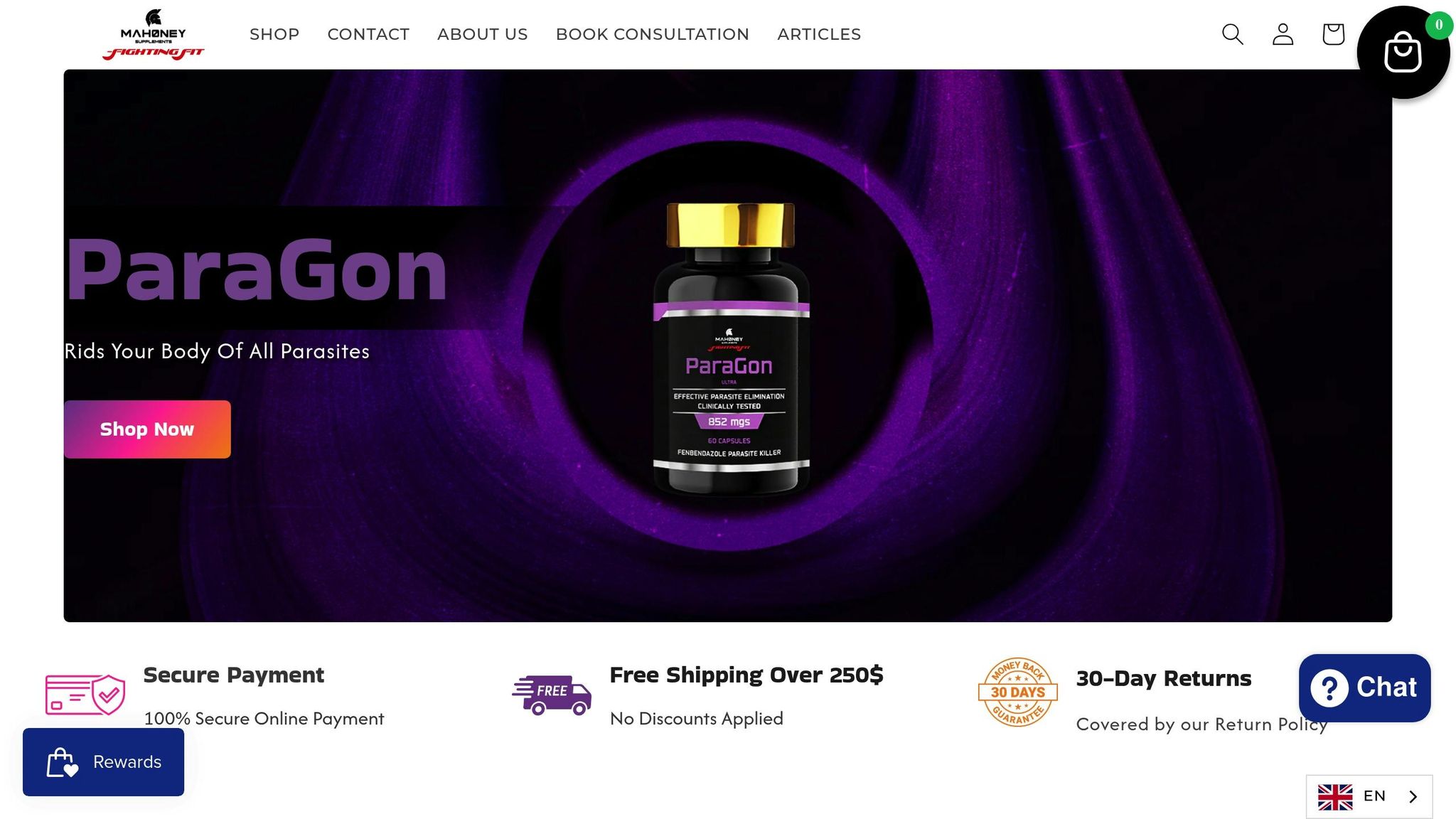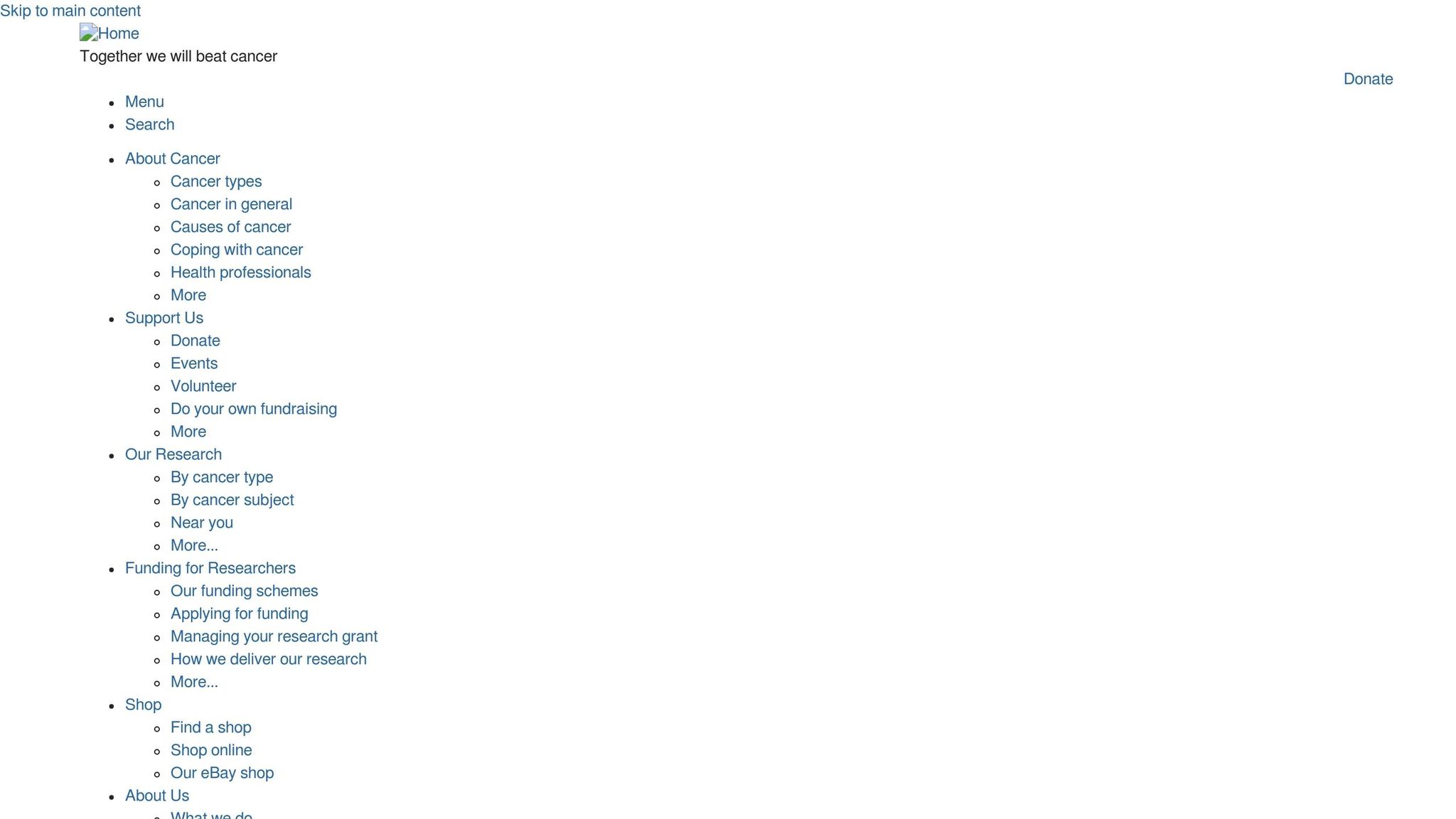
Herxheimer Symptoms: Causes And Solutions
Share
Feeling worse during a detox or treatment? It might be Herxheimer symptoms, also called die-off reactions. These occur when harmful microorganisms die off and release toxins faster than your body can eliminate them. Common symptoms include fever, fatigue, headaches, and digestive issues. While uncomfortable, these reactions often signal that the treatment is working.
Key Points:
- What happens: Pathogens die, releasing toxins that overwhelm detox systems (liver, kidneys, lymphatic system).
- Symptoms: Fever, chills, brain fog, joint pain, rapid heart rate, rashes, nausea.
- Triggers: Antibiotics, antifungals, sugar elimination, or detox protocols.
- Timeline: Symptoms can appear within 2–72 hours and last 1–7 days.
Solutions:
- Start slow: Gradually increase detox treatments or dietary changes.
- Stay hydrated: Drink 8–12 cups of water daily to flush out toxins.
- Support detox pathways: Use magnesium for bowel movements, dry brushing for lymph flow, and saunas or baths to sweat out toxins.
- Eat anti-inflammatory foods: Add turmeric, ginger, leafy greens, and berries.
- Consider supplements: TUDCA and NAC for liver support, ParaGon for parasites, and B17 for immune health.
Managing Herxheimer symptoms requires patience and a gradual approach. If symptoms persist, consult a healthcare provider for tailored guidance.
Preventing and Treating Die-Off Reactions (Herxing)
What Are Herxheimer Symptoms?
Herxheimer symptoms, also known as Jarisch-Herxheimer reactions (JHR), occur when toxins from dying pathogens temporarily worsen symptoms. This reaction often happens during detox processes or antimicrobial treatments. When harmful microorganisms are killed off quickly, they release toxins faster than the body can eliminate them, leading to a temporary overload of the detoxification systems.
"JHR is a transient clinical phenomenon that occurs in patients infected by spirochetes who undergo antibiotic treatment." – Aayush Dhakal and Evelyn Sbar
These reactions usually involve three key events: changes in body temperature, a temporary symptom flare, and physiological shifts. Symptoms often appear within two hours of starting treatment and usually resolve within 24 hours. However, in some detox protocols, they may emerge 24–72 hours later and last for 3–7 days. The symptoms can vary widely, as outlined below.
Common Symptoms of Die-Off Reactions
Herxheimer reactions can impact multiple systems in the body at once. Common symptoms include:
- Fever and chills
- Headaches and brain fog
- Mood changes
- Muscle and joint pain
- Fatigue
- Rapid heart rate or low blood pressure
- Skin flushing or rashes
- Digestive issues like nausea and vomiting
The severity of these symptoms often reflects the intensity of the underlying infection and the body's inflammatory response.
How Die-Off Reactions Work in the Body
Herxheimer reactions are driven by an inflammatory cascade triggered by the rapid death of pathogens. When antimicrobial treatments destroy large numbers of harmful microorganisms, the dying pathogens release toxins and inflammatory molecules into the bloodstream. Components from the pathogens' cell walls activate the immune system, prompting it to release inflammatory substances such as tumor necrosis factor-alpha, interleukin-6, and interleukin-8.
The liver, kidneys, and lymphatic system - responsible for clearing these toxins - can become overwhelmed by the sudden increase in the toxin load. While the exact mechanisms are complex and involve multiple factors, the reaction is essentially the immune system's effort to process and eliminate the byproducts of dead pathogens. Symptoms typically ease as the body clears the toxins, providing insight into how to manage these reactions effectively.
Main Causes of Herxheimer Symptoms
Getting a handle on what triggers Herxheimer symptoms can help you navigate and manage them more effectively. These reactions often arise when harmful microorganisms are destroyed too quickly for your body’s detox systems to keep up.
What Triggers Die-Off Reactions
Die-off reactions, or Herxheimer symptoms, often occur when antimicrobial treatments - like antibiotics, antifungals, or antiparasitics - kill harmful pathogens at a pace that overwhelms your body’s detox pathways, including the liver, kidneys, and lymphatic system. Similarly, cutting sugar or following strict elimination diets can trigger these symptoms by starving sugar-dependent microorganisms like Candida, leading to rapid die-off and toxin release.
For instance, when you eliminate sugar, harmful bacteria and yeast that thrive on it begin to die off quickly, releasing toxins into your system. Extreme elimination diets can further complicate this process by depriving your body of essential nutrients, making it harder for detox systems to function effectively. These combined factors can overload your body’s ability to process toxins.
Herxheimer reactions typically start within 24 to 72 hours of beginning a treatment or detox program and usually resolve within 3 to 7 days. However, for some individuals, symptoms may persist for weeks, depending on their toxin levels and how well their body can handle detoxification.
The situation becomes even more challenging when gut microbiome imbalances are involved.
Gut Microbiome Imbalance and Its Effects
An imbalanced gut can significantly intensify Herxheimer symptoms, making them more severe and prolonged. Conditions like Small Intestinal Bacterial Overgrowth (SIBO) are particularly problematic. When treatments target bacterial overgrowth in the small intestine, the sheer volume of bacteria dying off increases the toxic burden your body has to manage.
"Die-off, a form of a Herxheimer reaction, is a bodily process triggered by a sudden increase in endotoxins." - Amy Myers, MD
In cases of gut imbalances like SIBO or Candida overgrowth, the dying pathogens release a large amount of endotoxins, which can overstimulate the immune system. For example, Candida die-off can worsen leaky gut syndrome, where a compromised intestinal lining allows more toxins to leak into the bloodstream, amplifying symptoms.
Certain bacterial components, such as lipopolysaccharides (LPS) from gram-negative bacteria like Proteobacteria and Bacteroidetes, play a major role in triggering inflammatory responses during die-off reactions. These components can provoke strong immune reactions, further aggravating symptoms.
The body’s bile recycling process can also complicate matters. About 95% of bile is reabsorbed and reused, which means toxins that aren't effectively bound and eliminated can be reabsorbed repeatedly. For instance, toxins like ochratoxin A from mold can circulate multiple times, prolonging and worsening Herxheimer symptoms.
Parasite die-off introduces another layer of complexity. Symptoms often follow the parasite's life cycles, which can last anywhere from 7 to 21 days. This cyclical nature can lead to symptom flare-ups during specific phases of parasite development.
Although the exact mechanisms behind die-off reactions are not fully understood, they are believed to result from a combination of factors. What’s clear is that disruptions to the gut microbiome during detox or treatment create an environment where toxins build up faster than the body can eliminate them, worsening Herxheimer symptoms in the process.
Practical Ways to Manage Herxheimer Symptoms
Dealing with Herxheimer symptoms can feel overwhelming, but with the right steps, you can ease their intensity and duration while helping your body heal. The key is to support your body’s natural processes instead of overloading them.
The best approach combines a gradual detox process with lifestyle adjustments that aid your body’s elimination systems. This helps manage toxins more effectively and prevents unnecessary strain on your system.
Start Detox Protocols Slowly
A common mistake when starting a detox is diving in too aggressively. Your liver, kidneys, and lymphatic system need time to adapt to the increased workload of processing toxins. Begin with lower doses of detox supplements, antifungals, and binders, and increase them gradually as your body adjusts. For example, if a supplement suggests two capsules daily, start with half a capsule for the first week and slowly work your way up.
"Therefore, a slow, guided detoxification process is crucial, especially in complex conditions like mold illness, Lyme disease, or heavy metal toxicity. Supporting your body with appropriate binders, drainage support, hydration, and nervous system balance can transform a challenging detox into a manageable and effective healing journey." - Denver Sports and Holistic Medicine
Similarly, reduce sugar and processed foods gradually over a couple of weeks instead of cutting them out overnight. This can help you avoid severe die-off reactions. Shift toward a diet rich in nutrient-dense, anti-inflammatory foods, such as those recommended in the Mediterranean diet.
These initial steps lay the foundation for additional strategies to manage symptoms effectively.
Symptom Management Methods
Once you’ve eased into a detox protocol, there are several practices you can adopt to further reduce symptom severity.
Hydration and sleep should be top priorities. Dr. Amy Myers highlights the importance of these basics:
"My motto is when it comes to detoxifying, you need to make sure you're peeing, pooping, and sweating every single day! Drinking plenty of water will help ensure that you're doing all three of these." - Dr. Amy Myers
Aim for 8–12 cups (about 2–3 liters) of filtered water daily, and prioritize 8–9 hours of quality sleep each night. These habits are critical because your body’s detox pathways work most effectively during rest. Adding electrolytes or trace mineral drops to your water can help maintain proper mineral levels during detoxification.
To support toxin elimination further, consider these daily practices:
- Maintain regular bowel movements with the help of magnesium citrate if needed.
- Stimulate lymphatic flow through dry brushing or gentle rebounding exercises.
- Encourage sweating through methods like infrared sauna sessions, exercise, or detox baths.
Incorporate anti-inflammatory foods such as turmeric, ginger, cinnamon, leafy greens, and dark-colored berries to help minimize symptoms. For nervous system support, try deep breathing exercises, meditation, or adaptogenic herbs like ashwagandha or holy basil.
Lastly, reduce your overall toxic exposure by choosing organic foods, switching to natural cleaning products, and avoiding unnecessary chemicals. These small changes can ease the burden on your body’s detox systems.
sbb-itb-9616115
How Natural Supplements Help with Symptom Relief
Making lifestyle changes is essential for managing Herxheimer symptoms, but adding specific supplements can provide relief by supporting detoxification processes. These supplements are particularly helpful in promoting liver function and balancing the immune system during detox.
The liver plays a critical role in detox by converting harmful substances into forms that can be eliminated through urine or stool. Supporting this process can significantly improve how you feel during detox. Below are some supplements that target key challenges in detoxification.
ParaGon for Parasite Detox

ParaGon is specially designed to assist your body during parasite cleansing, a common trigger for detox symptoms. When parasites are eliminated, they release toxins that can overwhelm your body’s natural detox pathways, leading to intense reactions.
This supplement helps maintain gut health while aiding in the removal of parasites. Since parasite infections often disrupt the gut microbiome's balance, ParaGon also works to restore digestive harmony and support the immune system in handling the increased toxic load. To minimize severe reactions, start with a low dose and gradually increase it.
TUDCA & NAC for Liver Detox
During detox, your liver takes on the heavy lifting of processing and eliminating toxins. TUDCA (Tauroursodeoxycholic Acid) and NAC (N-Acetylcysteine) are two supplements that directly support liver function. TUDCA enhances bile flow, which is essential for removing fat-soluble toxins, while NAC boosts glutathione production, a key antioxidant that aids in detoxification. Together, these supplements support both phases of liver detox, ensuring toxins are efficiently processed and expelled.
B17 for Immune Support

B17, also known as amygdalin or laetrile, offers immune system support during detox. Studies suggest that amygdalin can promote the growth of T cells and enhance the secretion of IL-2 and interferon, which play a crucial role in managing the immune response to toxins released by dying pathogens. Additionally, B17 may provide antioxidant benefits, helping to protect cells from oxidative stress and further supporting detoxification.
Before incorporating B17 or any supplement into your routine, especially if you have complex health conditions or take other medications, consult with a healthcare professional.
Lifestyle Changes vs. Natural Supplements: A Comparison
Managing Herxheimer symptoms effectively calls for a thoughtful approach that combines overall health improvement with targeted detox strategies. Two key methods to address these symptoms are lifestyle changes and natural supplements, both of which aim to reduce inflammation and enhance detox pathways.
Lifestyle changes focus on creating a supportive environment for the body to heal naturally. This includes adopting an anti-inflammatory diet, staying hydrated, getting enough sleep, and managing stress. These habits help minimize the triggers that can exacerbate Herxheimer reactions. On the other hand, natural supplements are designed to address specific symptoms or detox pathways. They can deliver faster relief for certain issues while supporting the liver, immune system, and other organs responsible for toxin processing. The effectiveness of each approach depends on individual circumstances and the severity of symptoms.
Below is a table that highlights the key differences between these two approaches to help you make an informed decision about your detox plan.
Comparison Table: Lifestyle vs. Supplements
| Aspect | Lifestyle Changes | Natural Supplements |
|---|---|---|
| Primary Focus | Overall health and reducing Herxheimer triggers | Targeted relief for symptoms and detox pathways |
| Implementation | Gradually adopted and maintained long-term | Offers quicker, focused relief for specific symptoms |
| Examples | Anti-inflammatory foods, hydration, sleep, stress management, sauna, Epsom salt baths | TUDCA & NAC for liver health, ParaGon for parasites, B17 for immune support |
| Best Use Scenario | Chronic cases and long-term management | Acute symptom relief during intensive detox protocols |
| Cost | Low, mainly dietary and habit adjustments | Higher upfront cost but more focused effectiveness |
| Timeline | Gradual improvement over weeks to months | Relief often within days to weeks |
| Health Benefits | Broad, beyond Herxheimer symptom management | Specific to detoxification and symptom relief |
| Ease of Implementation | Easier to adopt gradually and sustain | Requires dosing knowledge and possibly professional guidance |
| Limitations | Slower results, requires consistent effort | Can be expensive and may need expert advice |
To manage Herxheimer symptoms effectively, it's best to start with a foundation of healthy lifestyle habits and incorporate targeted supplements as needed based on the severity of your symptoms. By combining these approaches, you can create a personalized detox plan that minimizes flare-ups and supports your overall well-being.
Managing Herxheimer Symptoms: Key Takeaways
Dealing with Herxheimer symptoms effectively involves a thoughtful approach that blends gradual detoxification, lifestyle changes, and natural supplements. Starting detox protocols slowly is key - this prevents overloading your body’s elimination systems and sets a solid foundation for recovery.
"By taking things slow, supporting your detox pathways, staying hydrated, and nourishing your body with the right supplements... you can minimize discomfort and stay on track with your health goals".
Supporting your detox pathways starts with hydration. Drink plenty of water and consider electrolyte-rich beverages to stay balanced. Prioritize 7–9 hours of quality sleep each night to aid recovery, and include light physical activity to boost circulation.
When lifestyle adjustments alone aren’t enough, natural supplements can provide additional support. For instance:
- TUDCA & NAC ($92.00): Helps with liver detox and alleviates die-off symptoms.
- ParaGon ($104.95): Aids in parasite cleansing while strengthening immunity.
- B17 ($102.95): Offers extra immune system support to assist the detox process.
The goal is to work with your body, not against it. If symptoms become too intense, it’s important to consult a healthcare professional. Tailored detox protocols, when supervised, can improve success rates by up to 30%.
FAQs
How can I tell if I’m experiencing Herxheimer symptoms or if my condition is getting worse?
Herxheimer symptoms, often referred to as a "healing crisis", tend to show up shortly after starting treatment and are usually short-lived. They can include fever, chills, headaches, fatigue, and muscle aches. These occur because your body is reacting to the release of toxins as harmful pathogens are being destroyed.
On the other hand, if your symptoms are tied to a worsening of your underlying condition, they are likely to persist and gradually get worse over time. Unlike Herxheimer symptoms, these are directly linked to the progression of your illness rather than your body's response to treatment. If you're uncertain about what's causing your symptoms, it's always a good idea to reach out to your healthcare provider to review your situation and adjust your treatment plan if necessary.
What should I do if my Herxheimer symptoms last longer than expected?
If your Herxheimer symptoms last longer than expected, it’s a good idea to reach out to a healthcare professional. They can assess whether what you’re experiencing is part of the usual healing process or if something else might be going on.
While waiting for symptoms to subside, make hydration a priority, ensure you’re getting enough rest, and fuel your body with a well-rounded diet. You might also consider natural supplements aimed at detox or immune support, but always check with your healthcare provider to determine what’s safe and effective for your situation.
What are the warning signs that I should stop a detox protocol due to severe Herxheimer reactions?
If you notice severe symptoms while following a detox plan, it could indicate the need to stop immediately. Be alert for the following warning signs:
- A high fever
- Intense chills
- Low blood pressure (hypotension)
- Trouble breathing
- Symptoms that worsen significantly or fail to improve over time
Should any of these symptoms become difficult to manage or appear life-threatening, seek medical help right away. It's always wise to consult a healthcare professional before making any adjustments to your detox regimen.
